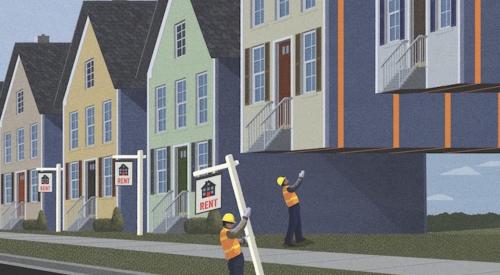It’s that time again, time to take the rent versus buy debate, mount it on a slide, and slip it under the microscope to poke, prod, and observe from yet another vantage point to determine which makes the most fiscal sense. Only, this time, it is a little different. It isn’t about whether renting or buying is better for Millennials or retirees. This time, The New York Times is looking at the more obscure or hidden aspects of the debate: those parts that can’t be calculated by plugging them into a formula. After all, not everything can be measured in precise dollars and cents.
For example, if someone lives in a city and plans to live there for years to come or has a job where they can’t expect their income to rise considerably in the coming decades, it makes more sense to buy than rent. While rents can spike out of nowhere and quickly become unaffordable, buying is a means of locking down an affordable place to live. There are two main questions to ask in regard to increasing rents. First, how difficult would it be to move somewhere else if need be and, second, how freely does your specific city allow new homebuilding? The harder it would be to move the more someone should value the insurance buying provides over renting. Similarly, if it is very difficult to build housing in your city, it makes it that much more likely demand will eventually outstrip supply and rents will increase.
Forced savings is another often-overlooked component of the rent versus buy debate. Buying a home forces the homeowner to save. If a person buys a home in their early 30s with a 30-year mortgage and stays until the home is paid off, they will own a very valuable asset upon hitting retirement age. They can continue to live in it rent free or sell it for a nice cushion of cash. Someone could mimic this with renting, as well, putting aside some money into a savings account each month, but for the homeowner, it happens automatically.
Another plus for the buy side of things is that there are plenty of hidden tax benefits for homeowners. If someone were to rent and then invest money in the stock market, they may receive a higher return, but they would have to pay taxes on those returns. When a person buys a home, however, the return you get from it, specifically, the fact that it gives you a place to live, is tax free. This is called imputed rent. Even if you buy a home with a mortgage, the down payment may earn a fully taxable return as an investment, but it provides you with free rent, a tax-free return, if used to buy a home.
Where renting comes out on top is in the cost of maintenance. Something many renters who transition to buyers overlook is when something goes wrong - the sink breaks, the washing machine is acting up, or the like – getting it fixed isn’t as easy as just calling the leasing office or the landlord and having the cost of any repairs already wrapped into the price of rent. As a homeowner, you never know when something major may go wrong that requires a repair costing many thousands of dollars. It isn’t the expected maintenance that can put homeowners in a tricky spot, it is the unexpected things that just pop up.











